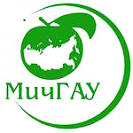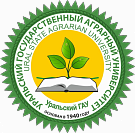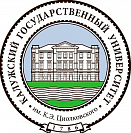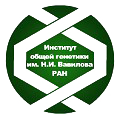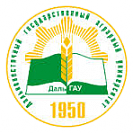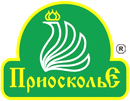Agriculture
The growing world population, which may increase by another two billion people by 2050, requires increasingly more food. For the humankind to avoid a global famine, as the one depicted in the science fiction film Interstellar, the agricultural sector will have to address a number of serious challenges.
First, the climate is changing, and agricultural technologies will have to adapt to new seasonal and weather conditions, including possible droughts, floods, and abrupt temperature changes. Another major problem is soil exhaustion. A solution may be found through aerobic restoration, which is a technology for saturating the soil with aerobic bacteria.
In addition, crop-farming diversity is declining: there are fewer new species of crops every year, with existing ones becoming extinct. This entails a need for deep research in artificial selection. GMO technologies allow for the breeding of new species with predetermined properties. For example, leading specialists are now working to create perennial grain crops that will help to reduce erosion, the fuel expenses of harvesters, and the use of pesticides and fertilizers.
The issue of a technical upgrade of the industry is especially topical for Russia, where the use of obsolete agricultural equipment is often the case. In the foreseeable future, robots and automated systems will help people in managing farms and agricultural enterprises. Various sensors will remotely communicate precise information about weather conditions, soil humidity, and plant and animal conditions; unmanned agricultural aircraft will watch over the fields from above, while careful robotic harvesters will relieve people of tiresome labor and accelerate the harvesting process. So-called farmbots are already being used and, according to estimates by global experts, will be in mass use before 2020. With the help of ground sensors and aerial surveys, we will be able to develop
the “precision farming” principle based on the notion that a field is heterogeneous, and to obtain maximum yield, with different parts requiring different treatment. At the same time, farming will stop being a purely rural domain, as cities will start building vertical farms, i.e. high-tech agricultural complexes on rooftops and in buildings.
Today, very few people think about the future and agricultural professions are not in high demand, but their prestige will grow over time. Technological innovations will allow efficient land utilization through reduced manual labor, while the growing complexity of the industry will change the requirements for the quality of human capital. Agricultural experts of the future will need systems thinking, developed management skills and knowledge of IT and biotechnology. Farmers will begin thinking as innovative businessmen, applying new technological solutions to increase the efficiency of their farms.
Besides industry development, much attention is being devoted to environmental issues, and harmful fertilizers will be gradually replaced with safe alternatives. Farming robots and smart systems will be gradually adapted to solar and wind energy. In the U.S.A., alternative energy sources are comparable in cost to traditional sources.
Professions
Agricultural economist
Highly qualified specialist ensuring the competitive performance of products and cost-efficient operation of agricultural companies; adjusting operations of an enterprise to suit the needs and requirements of the market. Responsible for managing a firm’s economic risks. While a few schools do provide training in the specialty, demand for it still exceeds supply on the job market.
Trends
Professional skills and abilities
Agricultural ecologist
Expert in waste disposal, i.e. in developing the principles of agricultural waste disposal and soil restoration.
Trends
Professional skills and abilities
Automatedfarming equipment operator
Specialist managing automated machinery at a farm: sensor systems, drones, and farmbots.
Trends
Professional skills and abilities
City farmer
Specialist in outfitting and maintaining agro-industrial facilities in skyscrapers and on their rooftops in big cities. Vertical farms are sustainable and eco-friendly structures enabling crop and animal farming within city limits. They are also on the agenda of the near future. The first commercial vertical farm was built in Singapore in 2012. Skyscraper farms are now planned in South Korea, China, UAE, USA, France, and other countries.
Trends
Professional skills and abilities
Gmo farmer
Specialist in the application of genetically modified products in agriculture; engaging in the implementation of biotechnological achievements and creating products with preset properties, In spite of the public debate around the subject, most scientists believe GMOs to be harmless, which is why the use of GMOs keeps growing: in 2013, over 11% of the world’s cultivated land is sown with genetically modified crops, while 91% of soybeans, 88% of cotton, and 85% of corn in the USA are genetically modified. In Russia, GM seeds have been subject to registration since 1 July 2014. The first harvest of genetically modified soybeans is scheduled for 2016 and 2017, and the profession is sure to be in demand at the time.
Trends
Professional skills and abilities
Agricultural informatics and engineerng expert
Highly qualified specialist in the implementation of new technologies, engaged in computerization and automation of agricultural facilities.
















